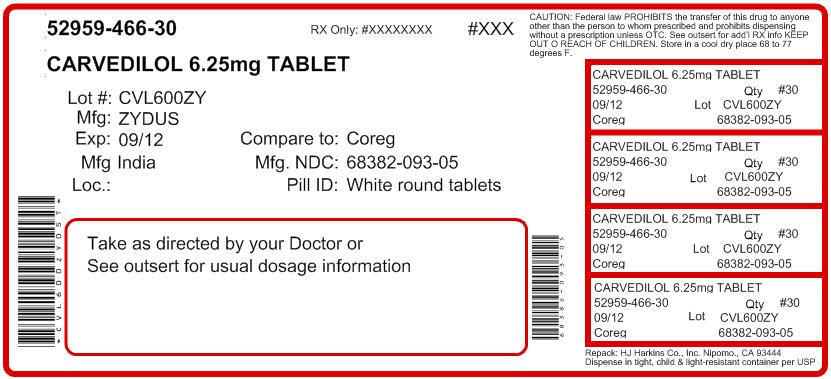
Carvedilol Tablet while Breastfeeding
What is Carvedilol Tablet used for?
Is Carvedilol Tablet usage safe while breastfeeding? If a lactating mother is using it can there be any effect on growth or development of infant?

8.3 Nursing Mothers It is not known whether this drug is excreted in human milk. Studies in rats have shown that carvedilol and/or its metabolites (as well as other β-blockers) cross the placental barrier and are excreted in breast milk. There was increased mortality at one week post-partum in neonates from rats treated with 60 mg/kg/day (10 times the MRHD as mg/m2) and above during the last trimester through day 22 of lactation. Because many drugs are excreted in human milk and because of the potential for serious adverse reactions in nursing infants from β-blockers, especially bradycardia, a decision should be made whether to discontinue nursing or to discontinue the drug, taking into account the importance of the drug to the mother. The effects of other α- and β-blocking agents have included perinatal and neonatal distress.
Carvedilol Tablet Breastfeeding Analsys
Carvedilol while Breastfeeding
Low RiskCAS Number: 72956-09-3
Since the last update we have not found published data on its excretion in breast milk. Its high percentage of plasma protein binding makes excretion in significant amounts very unlikely (Riant 1986). Other adrenergic beta-blockers of the same family and similar chemical structure are compatible with breastfeeding (see specific information for Labetalol or Propranolol). Until there is more published data on this drug in relation to breastfeeding, safer known alternatives may be preferable, especially during the neonatal period and in case of prematurity.
Carvedilol Tablet Breastfeeding Analsys - 2
Carvedilol while Breastfeeding
CAS Number: 72956-09-3
Based on its physicochemical properties, carvedilol appears to present a low-risk to the breastfed infant. Because there is no published experience with carvedilol during breastfeeding, other agents may be preferred, especially while nursing a newborn or preterm infant.
What if I already have used Carvedilol Tablet?
Carvedilol Tablet is in the category of low risk, if you have already used it then its not a big deal if health and behavior of baby is good. However your health care provider shall be aware of the fact that you have used Carvedilol Tablet so you should inform him based on your convenience.
I am nursing mother and my doctor has suggested me to use Carvedilol Tablet, is it safe?
Though Carvedilol Tablet dose not comes in category of safe drugs rather it comes in category of low risk but if your doctor is aware that you are breastfeeding your baby and has still recommended it then its advantages must be outweighing the risks.
If I am using Carvedilol Tablet, will my baby need extra monitoring?
Not much monitoring required while using Carvedilol Tablet
Who can I talk to if I have questions about usage of Carvedilol Tablet in breastfeeding?
US
National Womens Health and Breastfeeding Helpline: 800-994-9662 (TDD 888-220-5446) 9 a.m. and 6 p.m. ET, Monday through Friday
UK
National Breastfeeding Helpline: 0300-100-0212 9.30am to 9.30pm, daily
Association of Breastfeeding Mothers: 0300-330-5453
La Leche League: 0345-120-2918
The Breastfeeding Network supporter line in Bengali and Sylheti: 0300-456-2421
National Childbirth Trust (NCT): 0300-330-0700
Australia
National Breastfeeding Helpline: 1800-686-268 24 hours a day, 7 days a week
Canada
Telehealth Ontario for breastfeeding: 1-866-797-0000 24 hours a day, 7 days a week
